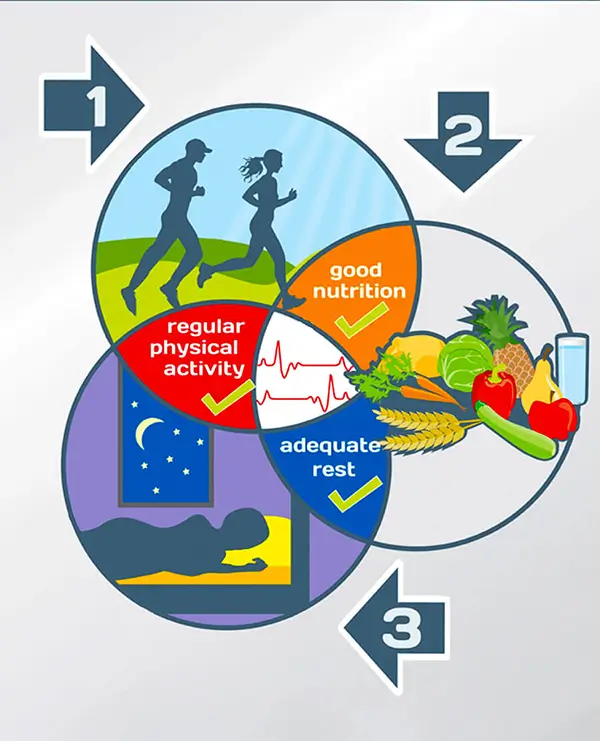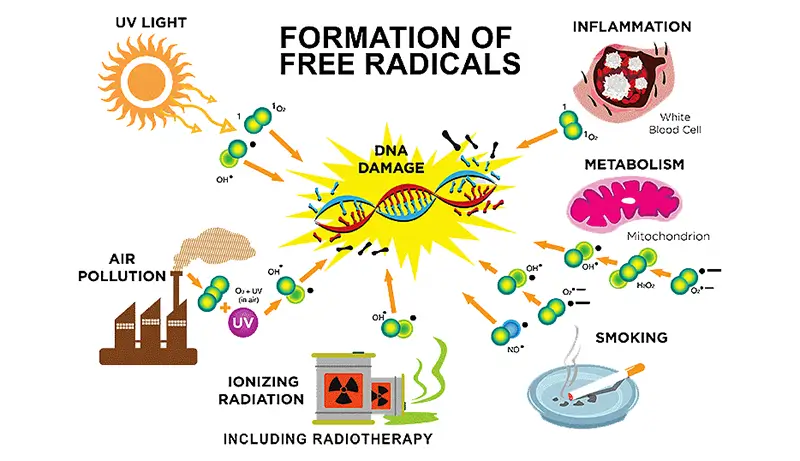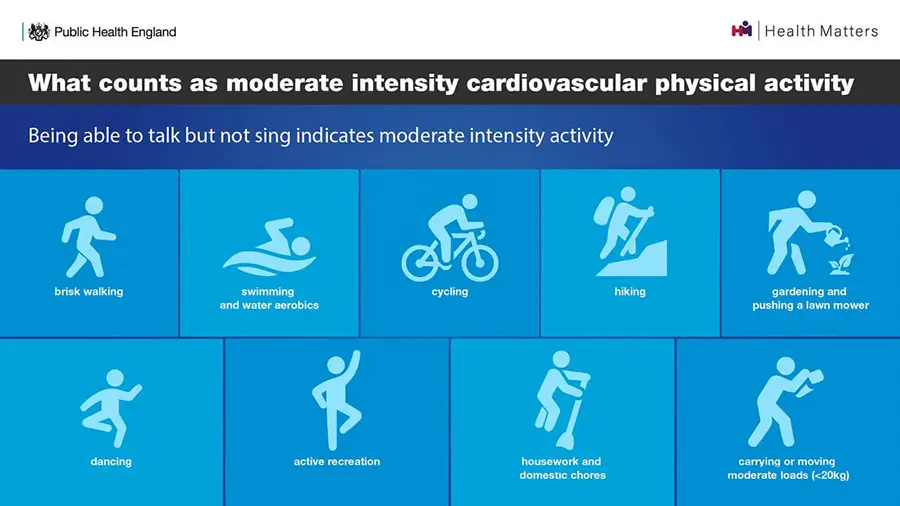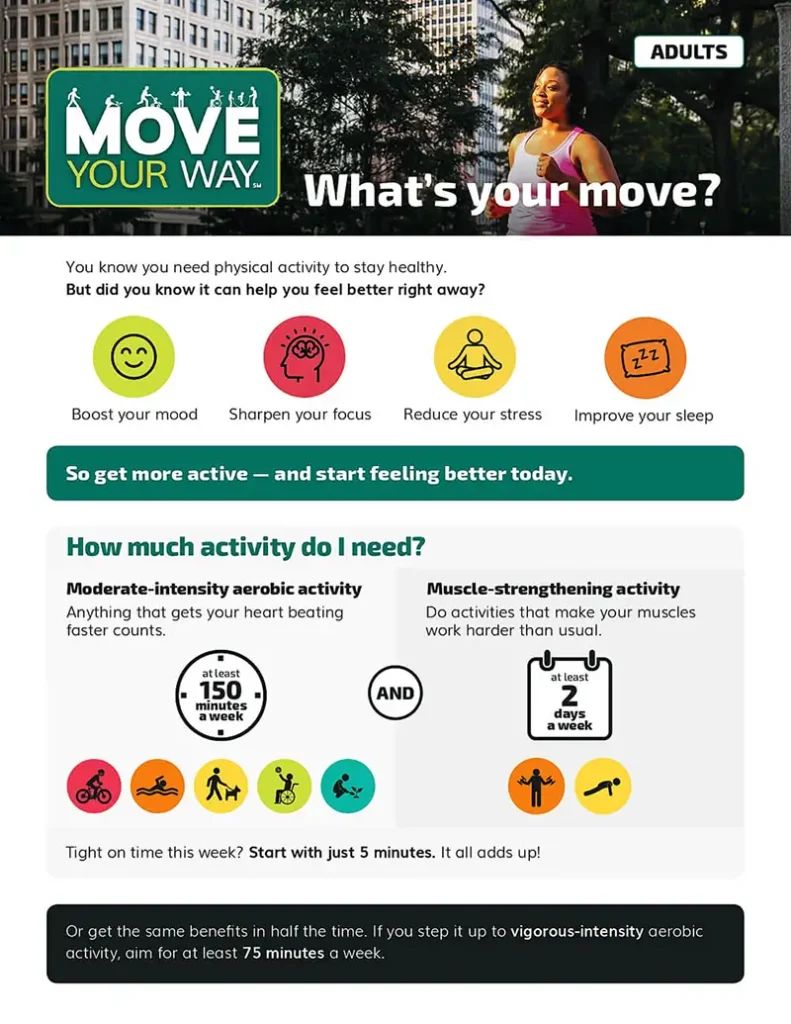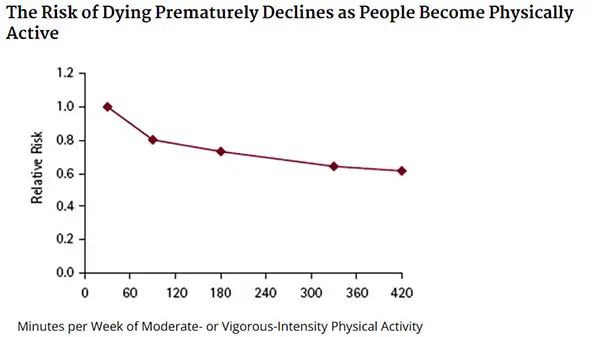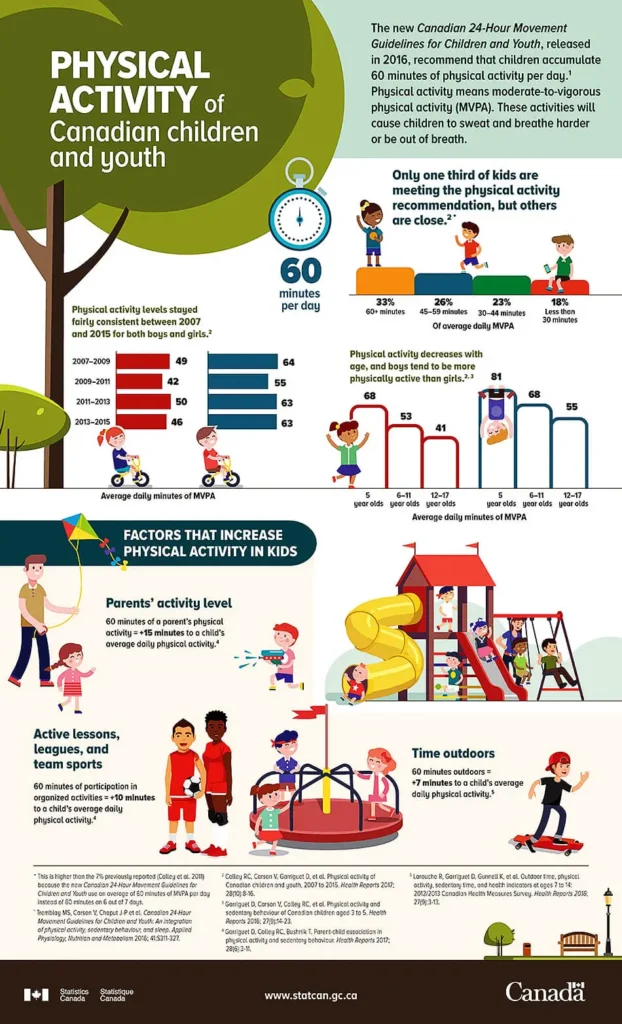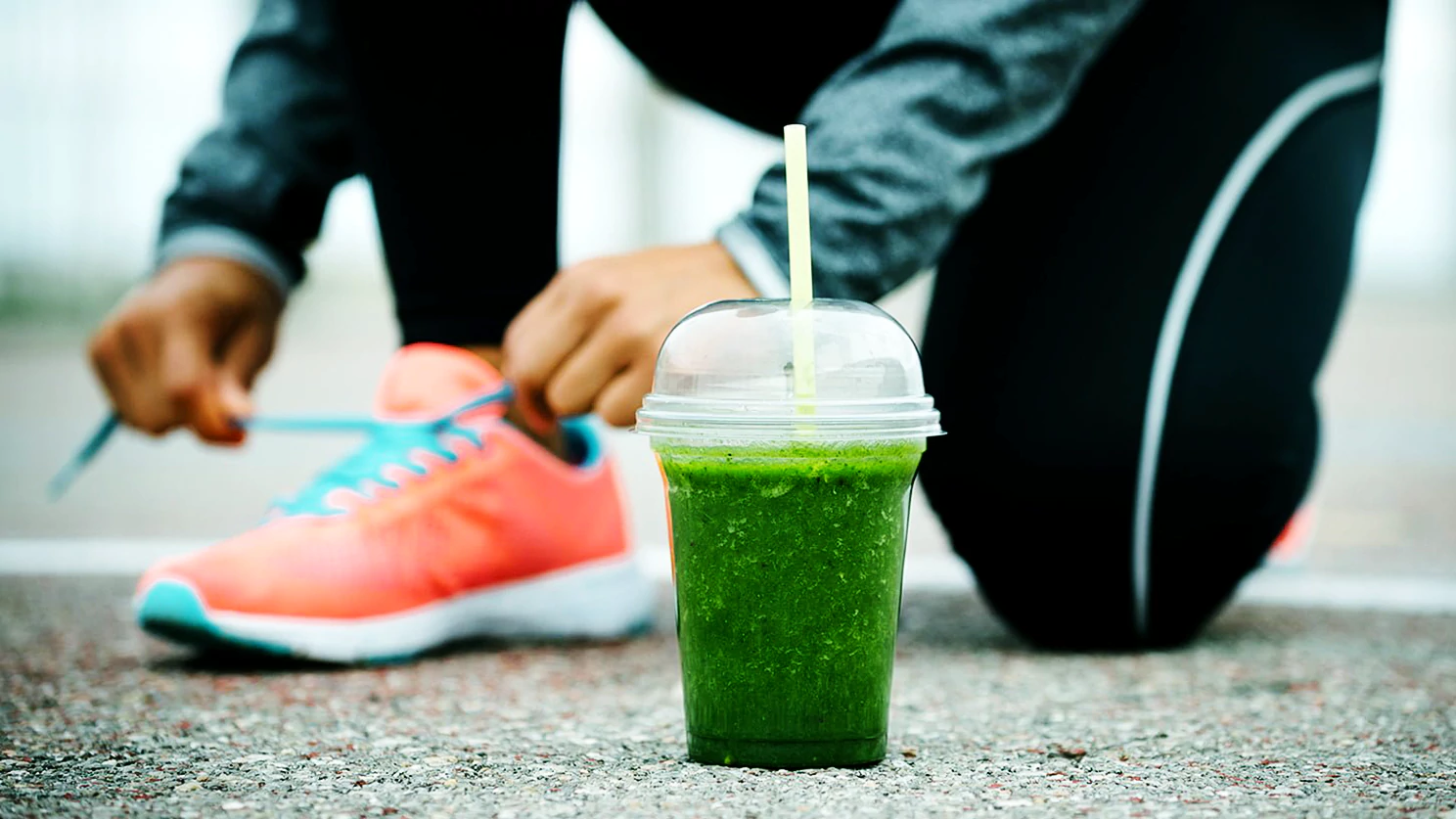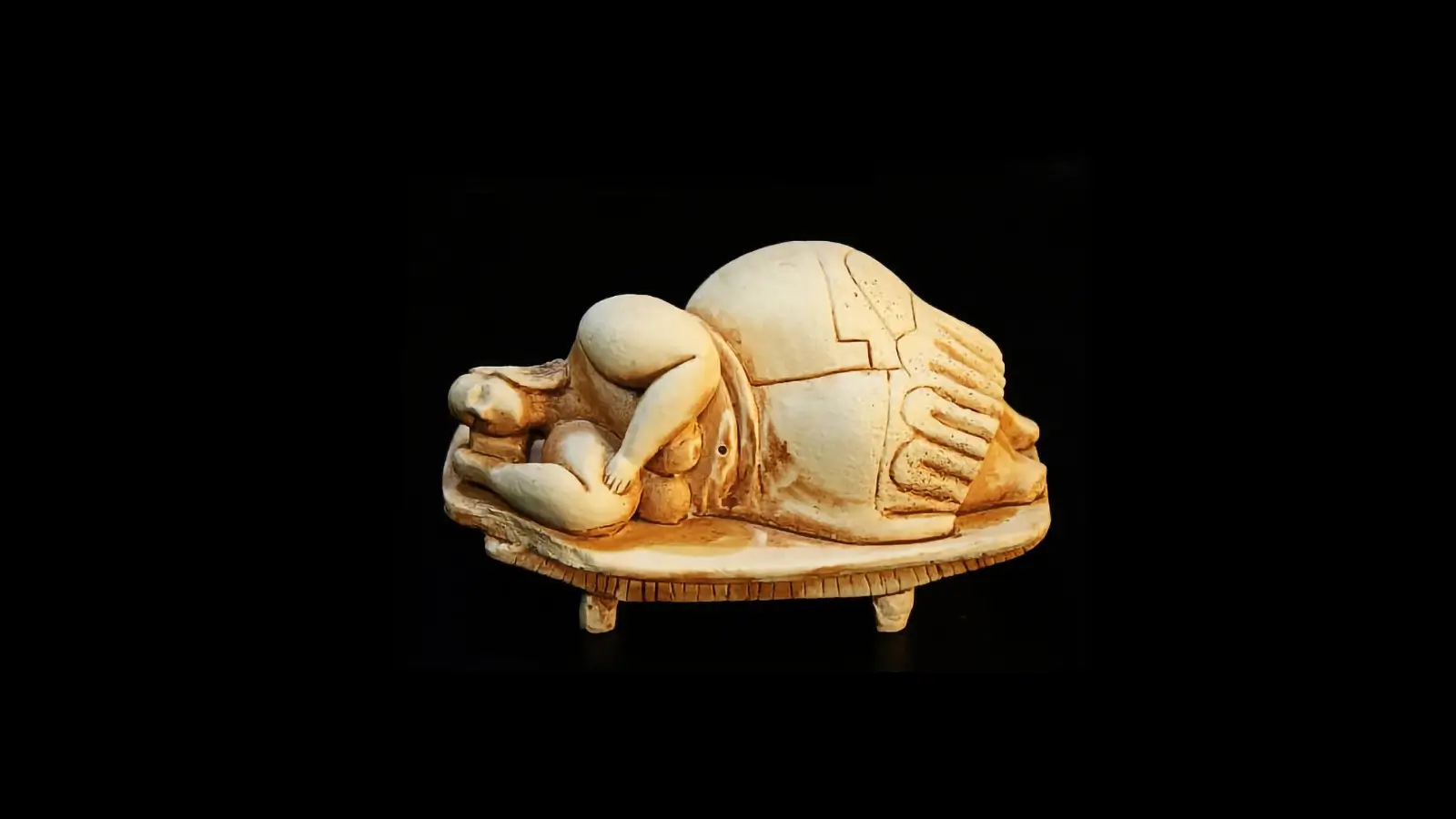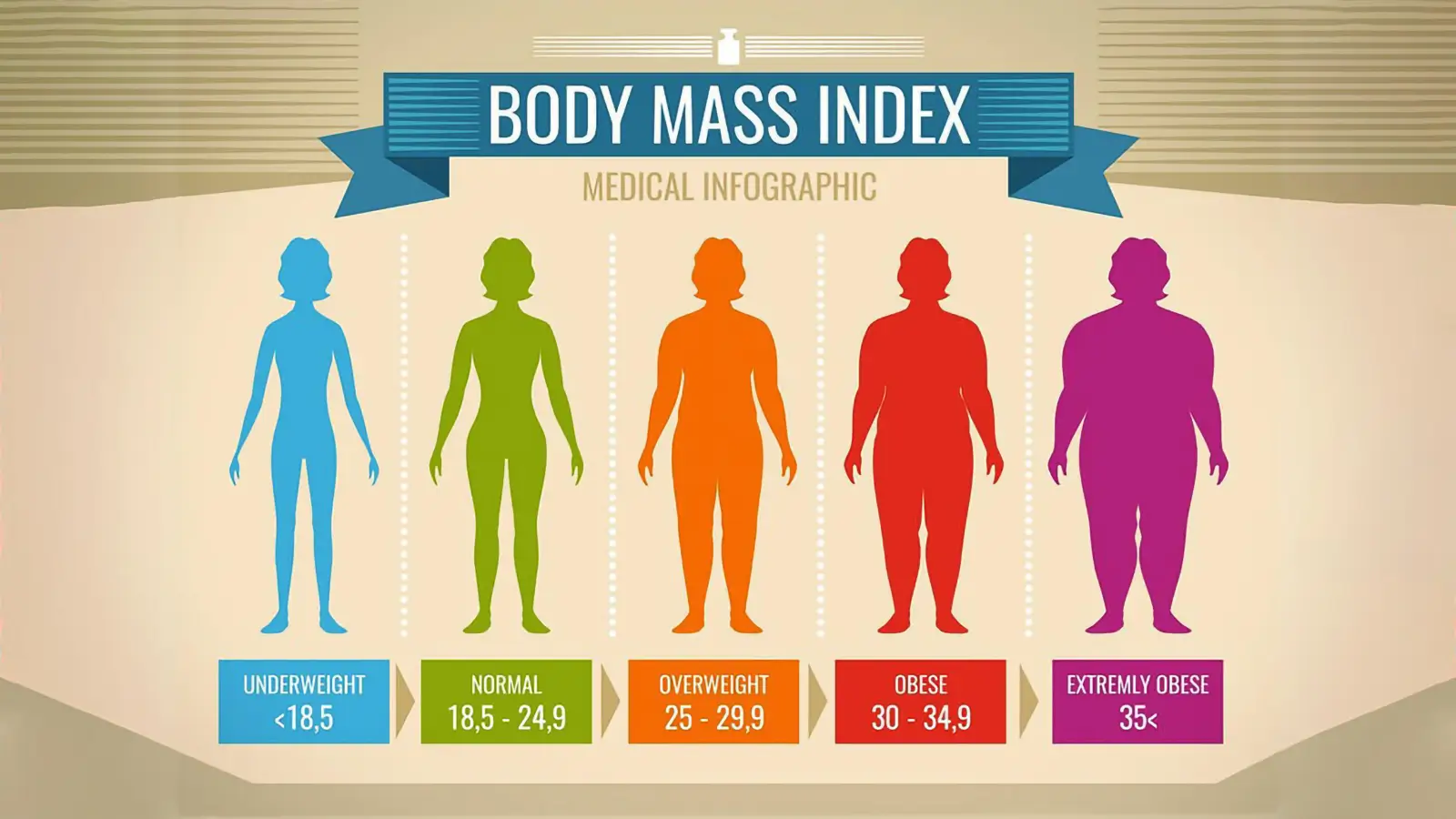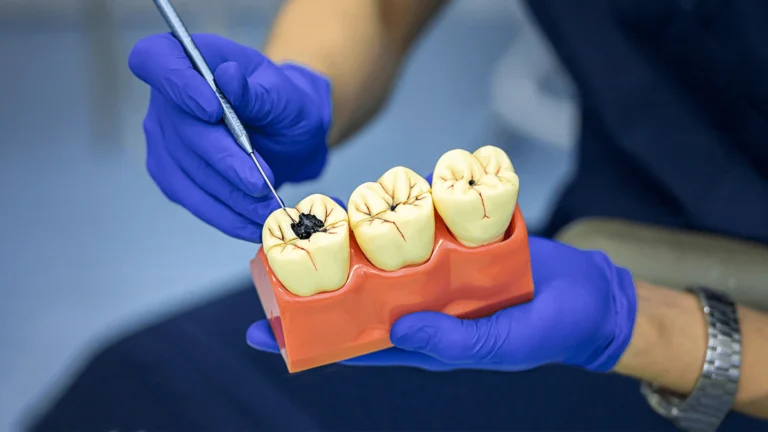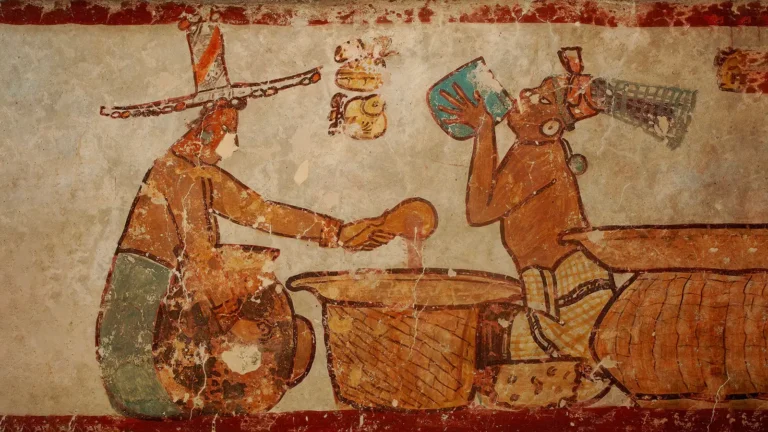Exercício - Por que exatamente o que é necessário?
Na comunidade de saúde, o exercício tem quase um status mítico como uma das melhores coisas que você pode fazer por si mesmo, exceto para evitar fumar.
Milos Pokimica
Escrito por: Milos Pokimica
Revisto Clinicamente Por: Dr. Xiùying Wáng, M.D.
Actualizado em 9 de Junho de 2023Todos sabemos que o treino ou exercício de qualquer tipo é saudável para nós. Os médicos gostam de falar muito sobre prevenção, e uma grande parte da prevenção irá resumir-se ao exercício, gestão de peso, e prevenção alimentar refinada. É tão importante que temos actividade física nas escolas. Temos diferentes tipos de desportos. Temos ligas profissionais de futebol e basquetebol para assistir nos tempos livres, mesmo os Jogos Olímpicos. Glorificamos os atletas profissionais como modelos a seguir pelos nossos filhos. Até o nosso cão fica agitado se não recebe a sua dose diária de caminhada.
Na saúde, o exercício em comunidade tem quase um estatuto mítico como uma das melhores coisas que se pode fazer por si próprio, excepto evitar o fumo. Na realidade, quando olhamos para dados científicos, a dieta é o assassino número um e a intervenção sanitária mais importante. Só depois da dieta, existem outros factores de risco associados à inactividade física e maus hábitos como fumar.
A crença de que a inactividade física é o maior problema de saúde pública do século XXI não é completamente verdadeira.
A inactividade física mal faz com que esteja entre as dez principais causas de morte no mundo. A dieta é a número um e fumar é a número dois. Isto não significa, contudo, que o exercício não seja importante. Apenas significa que há mudanças mais importantes no estilo de vida que estão a afectar a qualidade de vida de uma forma mais severa.
A dieta é absolutamente número um. O problema que temos é que os alimentos são uma substância viciante e os hábitos alimentares não podem ser tão facilmente alterados. As pessoas recusar-se-iam simplesmente a mudar o seu comportamento. O exercício é empurrado como um santo graal por essa única razão. As pessoas são viciadas em comida e o exercício ao contrário da dieta pode criar muito lucro, desde o desporto profissional até aos suplementos. Não há muito dinheiro para ser feito de cenouras.
A promoção de uma dieta à base de vegetais integrais é tudo menos uma máquina de fazer dinheiro. A grande indústria farmacêutica é um grande negócio, tal como a indústria dos suplementos. O exercício físico é uma forma rentável e comprovada de reduzir a mortalidade. Económica significa que não diminui os lucros das empresas existentes e, mais importante, é uma forma que as pessoas podem aceitar. Isto não significa que não seja tão importante como medida preventiva. Na vida real, proporcionará um benefício substancial. E sim, todos nós devemos fazer exercício.
Porquê?
Esta é a primeira pergunta que devemos saber. Bem, não é porque o exercício em si seja saudável. É uma experiência stressante, dolorosa e cheia de suor e a possibilidade de lesões que aumenta o stress oxidativo e leva à criação de danos radicais livres no ADN. Não existem espécies animais na natureza que gostem de "exercício". Não há nada de romântico na caça ou na procura de alimentos. Trata-se de uma necessidade existencial que é forçada. Quando exercitamos o que essencialmente estamos a fazer é que estamos a simular um ambiente em que os nossos antepassados evoluíram. Trata-se de uma forma de dor auto-infligida. Dor que só por si não é saudável e irá criar danos no DNA devido à produção excessiva de radicais livres devido ao aumento do consumo de oxigénio.
Se os radicais livres danificam o ADN e o exercício leva à criação de radicais livres, então como pode ser que a actividade física possa ser saudável?
Isso deve-se ao facto de os nossos antepassados hominídeos viverem da procura de alimentos. Isso criou adaptações evolutivas na nossa biologia. A atividade física era uma componente essencial da sua sobrevivência. Se não procurarmos, não encontramos comida e morremos. É tão simples quanto isso. A única razão pela qual o exercício é saudável é porque, num milhão de anos de evolução, o nosso corpo se adaptou a ele. O nosso corpo espera-o como uma parte normal da vida.
Quando não fazemos exercício estamos desequilibrados com a nossa fisiologia, e quando o fazemos, damos aos nossos corpos o que eles esperam. Quando vamos ao ginásio ou fazemos qualquer outro exercício como correr na passadeira, o que estamos a fazer é simular as condições no habitat dos nossos antepassados hominídeos.
Quando procuramos investigação científica sobre o exercício, o que é que encontramos? Será que o exercício é importante ou é apenas algo que nos ajuda a perder peso mais rapidamente? O que descobrimos é que os indivíduos com baixos níveis de atividade física correm um maior risco de contrair vários tipos de doenças, como as doenças cardíacas, o cancro, a doença de Alzheimer e a morte prematura por qualquer causa. Muito antes disso, a inatividade aumenta a dor lombar, agrava os sintomas da artrite e provoca ansiedade. O exercício físico pode ajudar a reduzir o risco de morte prematura, hipertensão arterial, acidente vascular cerebral, doença coronária, perfil lipídico sanguíneo adverso, diabetes de tipo 2, síndrome metabólica, cancro do cólon, cancro da mama, depressão e pode aumentar a saúde cognitiva e mental, a qualidade do sono, a função do sistema imunitário e a longevidade.
Há um par de benefícios principais da actividade física. O primeiro e principal serão os seus efeitos sobre o sistema cardiovascular. É provável que esteja a fazer algum "cardio" no ginásio.
Quando nos exercitamos, o coração começa a contrair com força e frequência. Isso irá aumentar o fluxo sanguíneo através das artérias e permitir que os nossos músculos utilizem mais oxigénio. Um aumento do fluxo sanguíneo irá causar alterações subtis no sistema nervoso autónomo, que controla a contracção e relaxamento destes vasos. Esta adaptação leva a uma diminuição da pressão arterial, uma frequência cardíaca mais variável, o que significa a capacidade do coração de abrandar ou aumentar as contracções quando necessário, e uma frequência cardíaca em repouso mais baixa em geral, o que significa um aumento da eficácia do sistema cardiovascular com menos batimentos para bombear o sangue através do corpo. Todos os aspectos têm um impacto na redução das doenças cardiovasculares.
O exercício físico também reduz a inflamação associada ao sistema cardiovascular. O exercício foi capaz de provocar uma redução de cerca de 30% nos níveis de proteína C-reactiva, um marcador de inflamação. Trinta por cento de redução é aproximadamente a mesma redução que a estatina (o medicamento para o colesterol) é capaz de provocar. O exercício reforça o sistema imunitário do organismo e previne o cancro e outras doenças.
Um dos principais benefícios será também um aumento da sensibilidade à insulina. Quando alguém corre, as contracções musculares aumentam a produção da proteína quinase activada por monofosfato de adenosina (AMPK). Esta é uma enzima que promove a decomposição de gorduras que podem interferir com os transportadores de glucose da célula. A AMPK pode ajudar a prevenir a diabetes tipo 2.
A investigação em ratos mostra que o exercício físico aumenta a BDNF (factor neurotrófico derivado do cérebro). A BDNF é um factor essencial na aprendizagem e na memória. A BDNF ajuda os ratos a lembrarem-se de como navegar através de labirintos, e uma actividade semelhante pode ser assumida nos humanos.
O exercício ajudará a manter a massa óssea e reduzirá o risco de osteoporose. Os ossos tornam-se mais fortes quando forçado a adaptar-se para suportar mais peso do que o habitual.
O Departamento de Saúde e Serviços Humanos (HHS) monitoriza este tipo de investigação e divulga periodicamente as suas Directrizes de Actividade Física para Americanos. As recomendações são as seguintes:
"Adultos com idades compreendidas entre os 18 e os 64 anos praticam exercício físico moderado (caminhar) durante pelo menos duas horas e 30 minutos ou vigoroso (correr, nadar ou andar de bicicleta a 10 mph ou mais rápido) durante pelo menos uma hora e 15 minutos por semana".
Isto é cerca de 11 minutos de corrida por dia na passadeira. Para as pessoas que não compreendem como ler este tipo de lançamento, a palavra-chave é, pelo menos, para. Quanto mais, melhor. Elas recomendam o que pensam que pode ser realizável. Quando olhamos para as suas tabelas da correlação entre o exercício e a morte prematura, tudo o que podemos ver é apenas uma queda linear constante.
Se fizermos 180 minutos de exercício por semana, teremos um risco 27% menor, mas se fizermos 420 minutos de exercício por semana teremos um risco 38,5% menor, e este tipo de correlação é encontrado em todos os estudos e revisões sistemáticas e meta-análises de estudos de coorte. Num estudo (Mok et al., 2019), analisaram 22 estudos que cumpriam os critérios de inclusão. Um estudo com 977.925 indivíduos (334.738 homens e 643.187 mulheres) concluiu que 2,5h/semana (equivalente a 30 minutos diários durante 5 dias por semana), em comparação com a ausência de atividade, estava correlacionado com uma diminuição do risco de mortalidade de 19%, enquanto 7h/semana de atividade moderada, em comparação com a ausência de atividade, reduzia o risco de mortalidade em 24%.
A conclusão foi a seguinte:
"Ser fisicamente activo reduz o risco de mortalidade por todas as causas".
Passar de nenhuma actividade para uma pequena quantidade foi considerado como o mais significativo dos benefícios.
No entanto, isso não significa que, se estivermos activos, não haja qualquer benefício adicional. Mesmo com níveis elevados de benefícios de actividade ainda, os benefícios advêm da actividade adicional. Quanto mais e mais longo for o exercício, mais benefícios.
Referências:
- Mok, A., Khaw, K., Luben, R., Wareham, N. J., & Brage, S. (2019). Trajetórias de atividade física e mortalidade: estudo de coorte de base populacional. BMJ, l2323. https://doi.org/10.1136/bmj.l2323
- Arem, H., Moore, S. C., Patel, A., Hartge, P., Berrington de Gonzalez, A., Visvanathan, K., Campbell, P. T., Freedman, M., Weiderpass, E., Adami, H. O., Linet, M. S., Lee, I. M., & Matthews, C. E. (2015). Atividade física de lazer e mortalidade: uma análise detalhada da relação dose-resposta. JAMA medicina interna, 175(6), 959-967. https://doi.org/10.1001/jamainternmed.2015.0533
- Woodcock, J., Franco, O. H., Orsini, N., & Roberts, I. (2011). Atividade física não-vigorosa e mortalidade por todas as causas: Systematic review and meta-analysis of cohort studies (Revisão sistemática e meta-análise de estudos de coorte). Jornal Internacional de Epidemiologia, 40(1), 121-138. https://doi.org/10.1093/ije/dyq104
Publicações Relacionadas
Você tem alguma dúvida sobre saúde e nutrição?
Eu adoraria ouvir de você e respondê-las em meu próximo post. Agradeço sua contribuição e opinião e espero ouvir de você em breve. Eu também convido você a siga-nos no Facebook, Instagram e Pinterest para mais conteúdos sobre dieta, nutrição e saúde. Pode deixar um comentário e ligar-se a outros entusiastas da saúde, partilhar as suas dicas e experiências e obter apoio e encorajamento da nossa equipa e comunidade.
Espero que este post tenha sido informativo e agradável para si e que esteja preparado para aplicar os conhecimentos que aprendeu. Se achou este post útil, por favor partilhá-lo com os seus amigos e familiares que também possam beneficiar com isso. Nunca se sabe quem poderá precisar de alguma orientação e apoio no seu percurso de saúde.
– Você Também Pode Gostar –

Aprender Sobre Nutrição
Milos Pokimica é médico de medicina natural, nutricionista clínico, escritor de saúde e nutrição médica, e conselheiro em ciências nutricionais. Autor da série de livros Go Vegan? Revisão de Ciênciaopera também o website de saúde natural GoVeganWay.com
Medical Disclaimer
GoVeganWay.com traz análises das pesquisas mais recentes sobre nutrição e saúde. As informações fornecidas representam a opinião pessoal do autor e não pretendem nem implicam substituir aconselhamento, diagnóstico ou tratamento médico profissional. As informações fornecidas são apenas para fins informativos e não se destinam a servir como substituto para consulta, diagnóstico e/ou tratamento médico de um médico ou profissional de saúde qualificado.NUNCA DESCONSIDERE o CONSELHO MÉDICO PROFISSIONAL OU adiar a BUSCA de TRATAMENTO MÉDICO por causa DE ALGO QUE TENHA LIDO OU ACESSADO por MEIO de GoVeganWay.com
NUNCA APLIQUE QUAISQUER MUDANÇAS de estilo de VIDA OU QUALQUER MUDANÇA COMO UMA CONSEQUÊNCIA DE ALGO QUE TENHA LIDO NO GoVeganWay.com ANTES de CONSULTORIA de LICENÇA MÉDICA.
No caso de uma emergência médica, ligue para o médico ou para o 911 imediatamente. GoVeganWay.com não recomenda ou endossa qualquer específicos, grupos, organizações, exames, médicos, produtos, procedimentos, opiniões ou outras informações que podem ser mencionadas dentro.
Sugestões do Editor –
Milos Pokimica é médico de medicina natural, nutricionista clínico, escritor de saúde e nutrição médica, e conselheiro em ciências nutricionais. Autor da série de livros Go Vegan? Revisão de Ciênciaopera também o website de saúde natural GoVeganWay.com
Artigos Mais Recentes -
Planta De Notícias Com Base Em
-
10 Quick Vegan Weekday Breakfasts
on Julho 9, 2025
-
This Tempeh Parmesan Recipe Has Gone Viral For A Reason
on Julho 8, 2025
-
This High-Protein Vegan Kimchi Jjigae Might Be The Best Yet
on Julho 8, 2025
-
16 Vegan Trader Joe’s Meals You Need To Know
on Julho 7, 2025
-
Odeon Cinemas Just Added A Moving Mountains Vegan Hot Dog To The Menu
on Julho 7, 2025
-
5 Practical Travel Tips From A Vegan Explorer
on Julho 7, 2025
-
Jamie Oliver Highlights ‘Important Connection’ Between Tofu And Longevity
on Julho 6, 2025
Superior De Saúde De Notícias — ScienceDaily
- Matching your workouts to your personality could make exercising more enjoyable and give you better resultson Julho 9, 2025
Less than a quarter of us hit WHO activity targets, but a new UCL study suggests the trick may be matching workouts to our personalities: extroverts thrive in high-energy group sports, neurotics prefer private bursts with breaks, and everyone sees stress levels drop when they find exercise they enjoy.
- Hate exercise? Neuroscience maps the routine your personality will loveon Julho 8, 2025
A new UCL study reveals that aligning workouts with personality boosts fitness and slashes stress—extroverts thrive on HIIT, neurotics favor short, private bursts, and everyone benefits when enjoyment leads the way.
- Alzheimer’s doesn’t strike at random: These 4 early-warning patterns tell the storyon Julho 7, 2025
UCLA scientists mined millions of electronic health records and uncovered four distinct “roadways” that funnel people toward Alzheimer’s—ranging from mental-health struggles to vascular troubles. Following these breadcrumb trails proved far better at predicting who will develop dementia than single risk factors. The findings hint that spotting—and halting—specific sequences early could rewrite how we prevent the disease.
- Study finds tummy-tuck patients still shedding pounds five years lateron Julho 7, 2025
Patients who undergo tummy tuck surgery may be in for more than just cosmetic changes — a new study shows they often keep losing weight for years after the procedure. Researchers followed 188 patients and found consistent weight reduction up to five years later, especially in those with higher initial BMIs. Interestingly, lifestyle improvements, such as better diet and exercise habits, may play a key role in this surprising long-term effect. This could mean tummy tucks aren’t just sculpting […]
- Feeling mental exhaustion? These two areas of the brain may control whether people give up or persevereon Julho 7, 2025
When you’re mentally exhausted, your brain might be doing more behind the scenes than you think. In a new study using functional MRI, researchers uncovered two key brain regions that activate when people feel cognitively fatigued—regions that appear to weigh the cost of continuing mental effort versus giving up. Surprisingly, participants needed high financial incentives to push through challenging memory tasks, hinting that motivation can override mental fatigue. These insights may pave the […]
- New research shows Monday stress is etched into your biologyon Julho 7, 2025
Feeling jittery as the week kicks off isn’t just a mood—it leaves a biochemical footprint. Researchers tracked thousands of older adults and found those who dread Mondays carry elevated cortisol in their hair for months, a stress echo that may help explain the well-known Monday heart-attack spike. Even retirees aren’t spared, hinting that society’s calendar, not the workplace alone, wires Monday anxiety deep into the HPA axis and, ultimately, cardiovascular risk.
- Cough medicine turned brain protector? Ambroxol may slow Parkinson’s dementiaon Julho 6, 2025
Ambroxol, long used for coughs in Europe, stabilized symptoms and brain-damage markers in Parkinson’s dementia patients over 12 months, whereas placebo patients worsened. Those with high-risk genes even saw cognitive gains, hinting at real disease-modifying power.
PubMed, #vegan-dieta –
- Framing the meat consumption transition: A statistical learning approach to explore the factors shaping young adults’ food choices in Germany and Italyon Julho 6, 2025
This study examines the factors driving changes in meat consumption among young adults in Germany and Italy-two high-income countries that, despite their distinct culinary traditions, have seen a convergence in meat consumption levels in recent years. The research addresses two aims: to examine the role of environmental attitudes in shaping dietary choices and to explore the impact of socio-demographic factors on meat-consumption patterns. The analysis employs the General Ecological Behavior…
- Health and environmental impacts of shifting to plant-based analogues: a risk-benefit assessmenton Julho 5, 2025
CONCLUSION: PBAs can be considered feasible alternatives to animal-based foods, and the results emphasise meat substitution as a crucial factor for health and environmental benefits.
- Exploring the role of gut microbiota in rheumatoid arthritis: the effects of diet and drug supplementationon Julho 2, 2025
Rheumatoid Arthritis (RA) is a chronic autoimmune disease that mostly breaks out at the joints. It further causes bone erosion and decreased life quality due to severe pain. Current drugs are mainly focused on reducing pain, but unable to terminate the disease progression. This study aims to determine the effect of diet types (Western, Vegan and Mediterranean) on RA progression. Some dietary supplements and drug administration (Huayu-Qiangshen-Tongbi formula or Leflunomide plus Methotrexate) […]
- Blood biomarkers of Alzheimer’s disease in Australians habitually consuming various plant-based dietson Junho 30, 2025
BackgroundEvidence suggests that plant-based diets (PBDs) may be protective against neurodegenerative diseases such as Alzheimer’s disease (AD).ObjectiveThis study examined associations between blood-based AD biomarkers in individuals 30-75 years without current or diagnosed cardiovascular disease following different PBDs versus regular meat-eating diets (RMEs).MethodsThis secondary analysis of the Plant-based Diets study measured Aβ(1-42)/Aβ(1-40), p-tau181, NFL, and GFAP in 237 plasma […]
- Zinc supplementation among zinc-deficient vegetarians and vegans restores antiviral interferon-α response by upregulating interferon regulatory factor 3on Junho 28, 2025
CONCLUSION: We identified zinc-dependent IRF3 expression as an essential cellular mechanism behind impaired IFNα response in zinc-deficient subjects. This may contribute to disturbed antiviral immunity and cause increased susceptibility to virus infections in vivo. Oral zinc supplementation effectively restored IRF3 and IFNα levels. Hence, nutritional interventions may become increasingly important in order to prevent health implications from micronutrient deficiencies among vegetarians and…
Postagens aleatórias –
Postagens em destaque –

Últimas do PubMed, #dieta baseada em vegetais –
- Healthy Plant-Based Diet Is Associated With a Reduced Risk of Inflammatory Bowel Disease: A Large-Scale Prospective Analysispor Zhenhe Jin on Julho 9, 2025
Current studies indicated a potential inverse association between plant-based diets (PBD) and inflammatory bowel disease (IBD). Large-scale research is needed to confirm the protective role of PBD in IBD risk. This study evaluated the associations between PBD and IBD risk and explored potential mediators. This prospective cohort study included 143 434 UK Biobank participants, using 24-h dietary recalls to calculate PBD indexes. Cox regression assessed associations between PBD and IBD risk….
- Acute glycaemic response of orange juice consumption with breakfast in individuals with type 2 diabetes: a randomized cross-over trialpor Kenneth Verboven on Julho 8, 2025
CONCLUSION: Acute glycaemic control in individuals with well-controlled T2DM is not significantly influenced by serving orange juice, whole orange pieces or a sugar-sweetened beverage with a standard high-carbohydrate meal.
- Interaction of genetic risk score (GRS) and Plant-Based diet on atherogenic factors and body fat distribution indices among women with overweight and obesity: a cross-sectional studypor Mahya Mehri Hajmir on Julho 8, 2025
The association between plant-based diets, obesity, cardiovascular disease (CVD), and genetic predisposition is still not fully understood. This study explored how plant-based diets interact with genetic susceptibility to atherosclerosis and body fat in 377 Iranian women aged 18 to 48 who were overweight or obese. Using a validated 147-item food frequency questionnaire (FFQ), we established three plant-based diet indices: the Plant-Based Diet Index (PDI), the Healthy Plant-Based Diet Index…
- Impact of Dietary Patterns on Migraine Management: Mechanisms of Action and Recent Literature Insightspor Vahideh Behrouz on Julho 7, 2025
CONCLUSIONS: In conclusion, adopting specific dietary strategies may offer a viable approach for individuals suffering from migraines, warranting further research to establish definitive guidelines.
- Trends in diet structural composition and quality among adults in Beijing, China (2010-2022)por Ningsu Chen on Julho 7, 2025
CONCLUSION: Between 2010 and 2022, Beijing adults experienced substantial imbalances in dietary structure, characterized by decreasing energy intake from carbohydrates and increasing intake from fat, both diverging further from recommended levels. Dietary deficiencies and excesses coexist, contributing to suboptimal dietary quality compared with national dietary guidelines.
- Diet in Pregnancy: A Review of Current Challenges and Recommendations. A British Nutrition Foundation Briefing Paperpor Kathryn H Hart on Julho 6, 2025
Pregnancy is a crucial period during which maternal nutrition, weight and lifestyle behaviours have a direct impact on both maternal and fetal health. This briefing paper describes dietary and lifestyle recommendations for women during the preconceptional period and throughout pregnancy, identifying specific factors that can be modified to improve health outcomes for both mother and child. It considers key areas such as nutrient intakes, supplementation, food safety and weight management, and…
